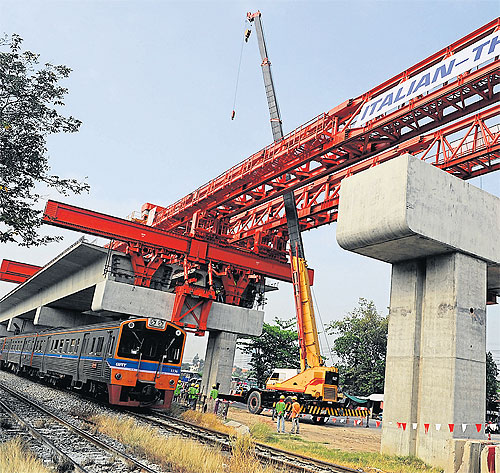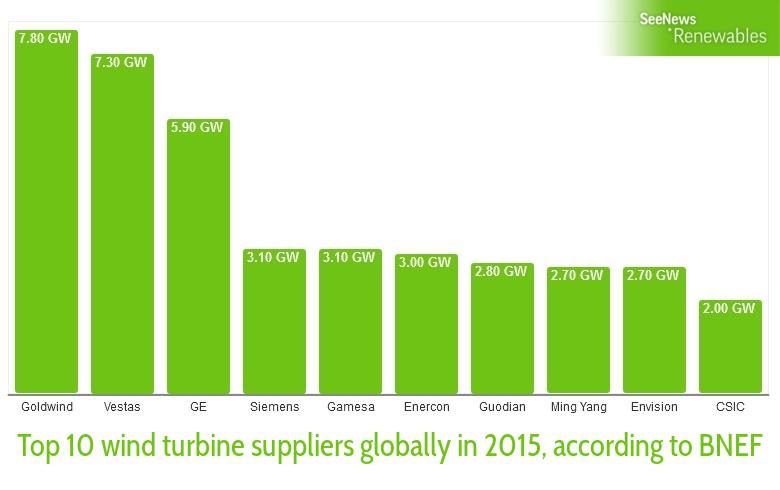German engineering conglomerate Siemens AG foresees continuous demand for rail systems in Thailand despite investment delays.

A train approaches construction of the 26.3-kilometre-long Bang Sue-Rangsit Red Line mass-transit project. More rail projects are planned including a 900-km-long double-track railway. WICHAN CHAROENKIARTPAKUN
Tomasz Mazur, head of the mobility division at Siemens (Thailand), said even though Thailand had delayed some of its railway infrastructure projects, demand for light rail in the country was still likely to increase substantially.
The company has been heavily involved in the country’s mass-transit system, among others providing the mechanical and electrical turnkey systems for the Airport Rail Link, he said.
Several mass-transit projects are in the government’s pipeline such as an extension to the Blue Line as well as new ones that are due to open to tenders in the next few years including the Orange Line.
“The mass-transit system is an ideal transport system, particularly in Bangkok. It’s a crucial solution to effective traffic management,” Mr Mazur said.
He said Siemens did not provide monorail systems but was still interested in providing the signal and electrification systems for the Pink Line monorail.
“Locomotives are used in Thailand for up to 40 years, so these are ageing machines that need to be fixed and replaced. That’s why we say there’s huge demand in Thailand,” Mr Mazur said.
He said Siemens was also interested in providing a new electrification system for the ageing Thai railway system.
Furthermore, Siemens is looking at the possibility of finding a regional partner to set up a limited manufacturing capacity for certain components in Thailand to supply its products and services to the entire sector.
Siemens plans to continue expanding both in Thailand and throughout the region and expects to use its expertise in spare parts and engineering support to Asia-Pacific since it has a Center of Competence in Bangkok for rail services and spare parts.
“Siemens has an advantage since we have a huge local operation along with employees who understand local customers very well,” Mr Mazur said.
The company also plans to participate in a rail project that is being negotiated between the Thai and German governments.
While the nature of the initiative remains under discussion, Siemens is interested in all aspects.
“We would focus on technology transfers, standardisation and ensuring the interoperability of the Thai rail system,” he said.
At the same time, Siemens is keen on providing European-standard signalling systems to other rail projects awarded to China and Japan.
“The European rail signalling standard is an open system used by major companies,” Mr Mazur said.
“It’s suitable for Thailand and compatible with other rail systems in the region.”
Source: http://www.bangkokpost.com/business/news/538335/siemens-on-track-to-build-up-rail-system

